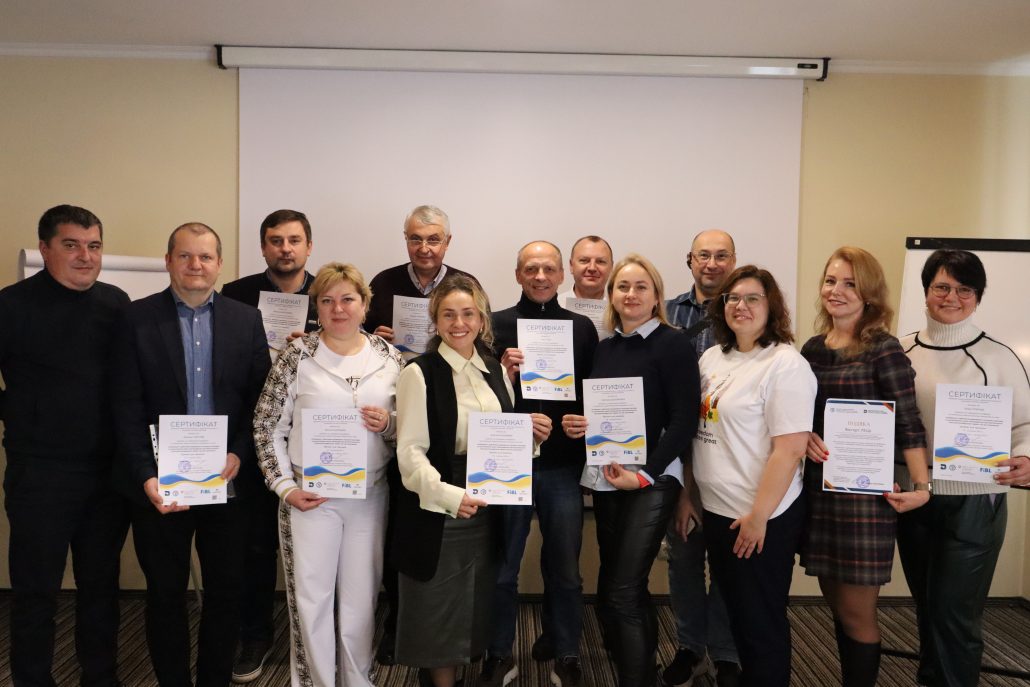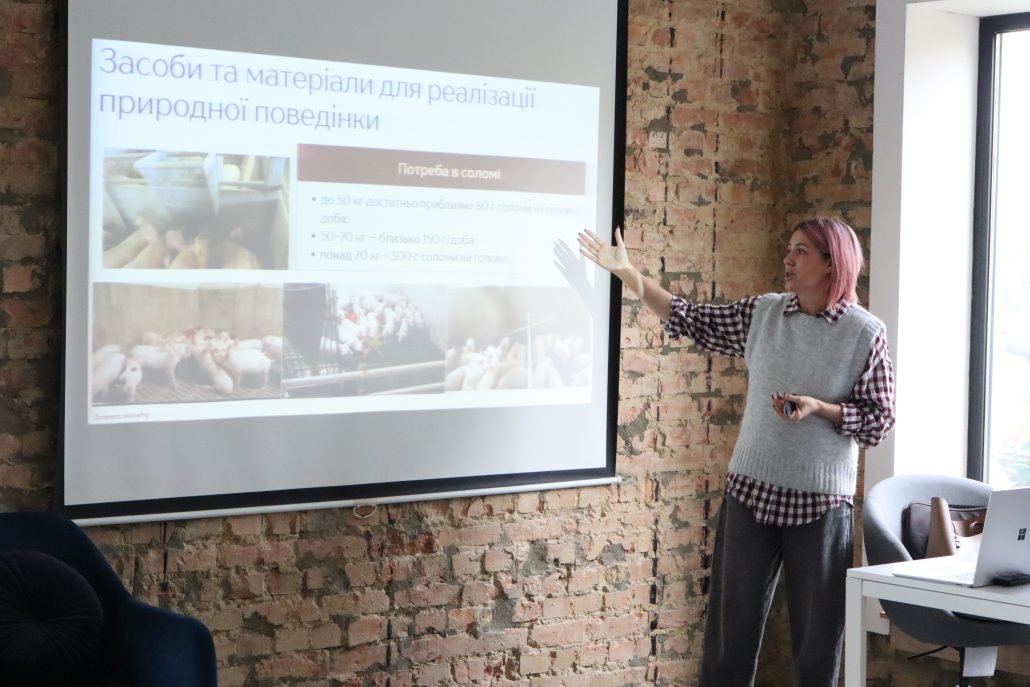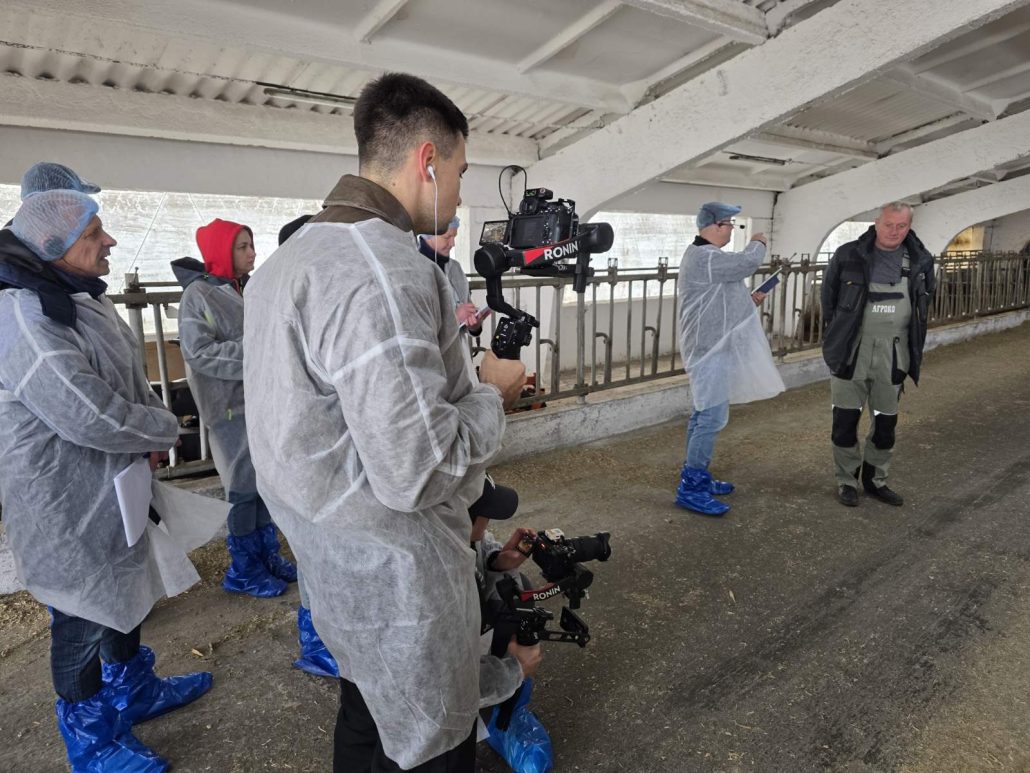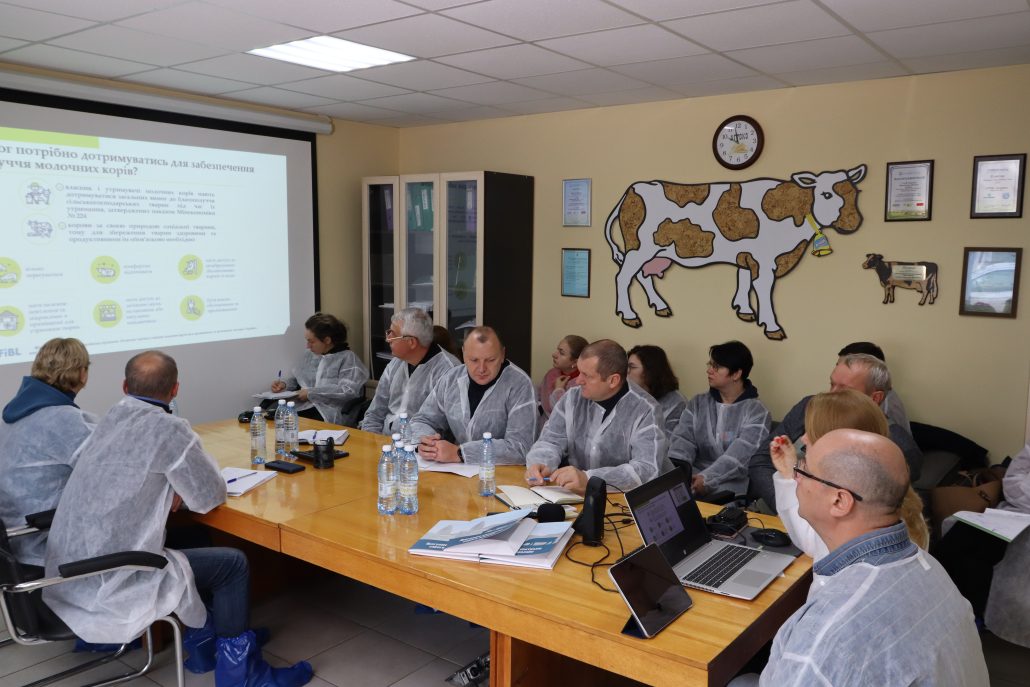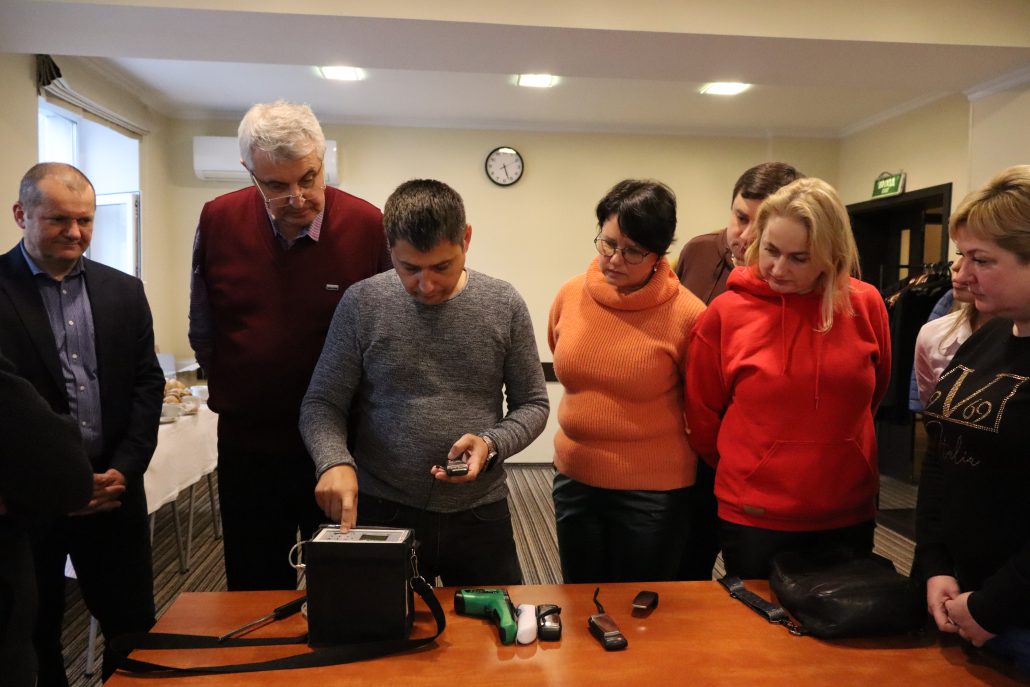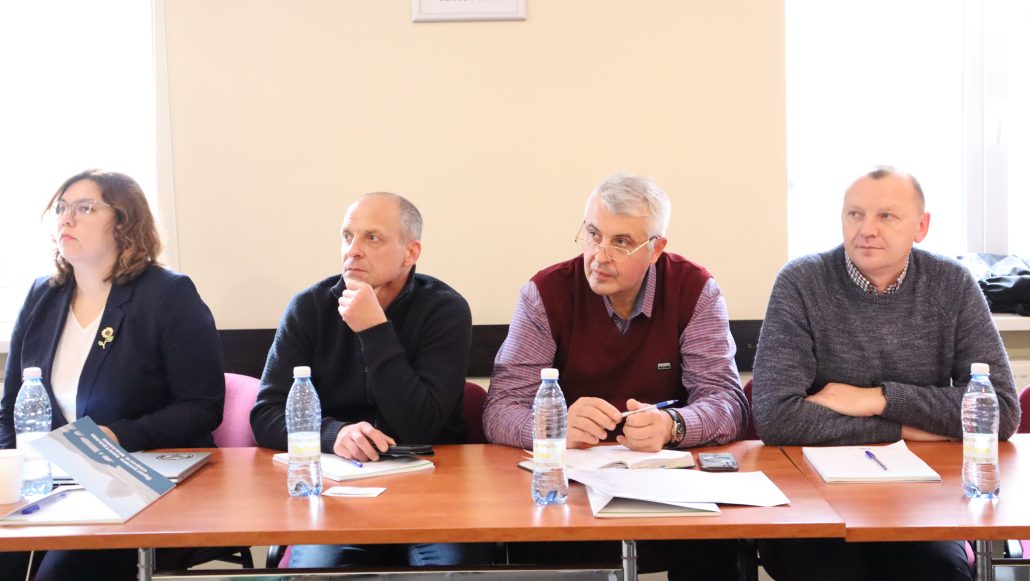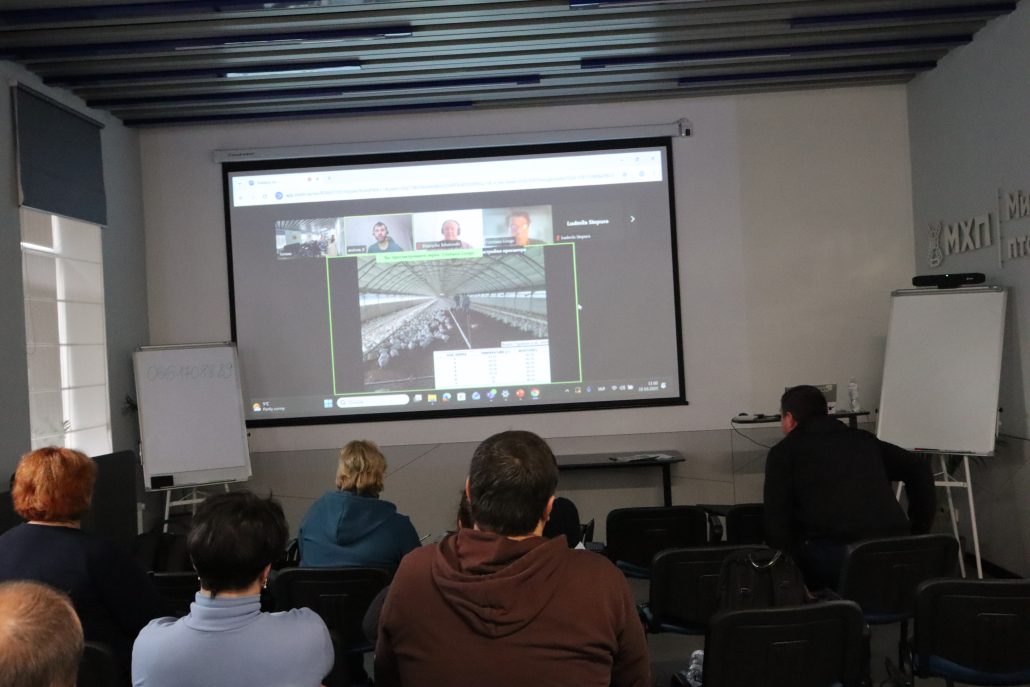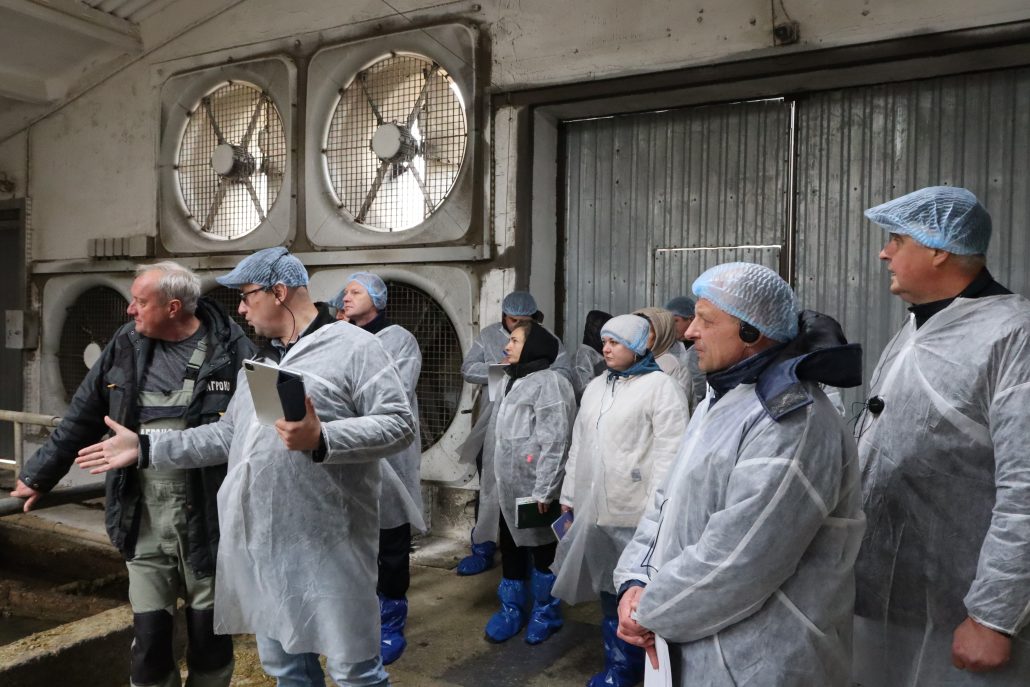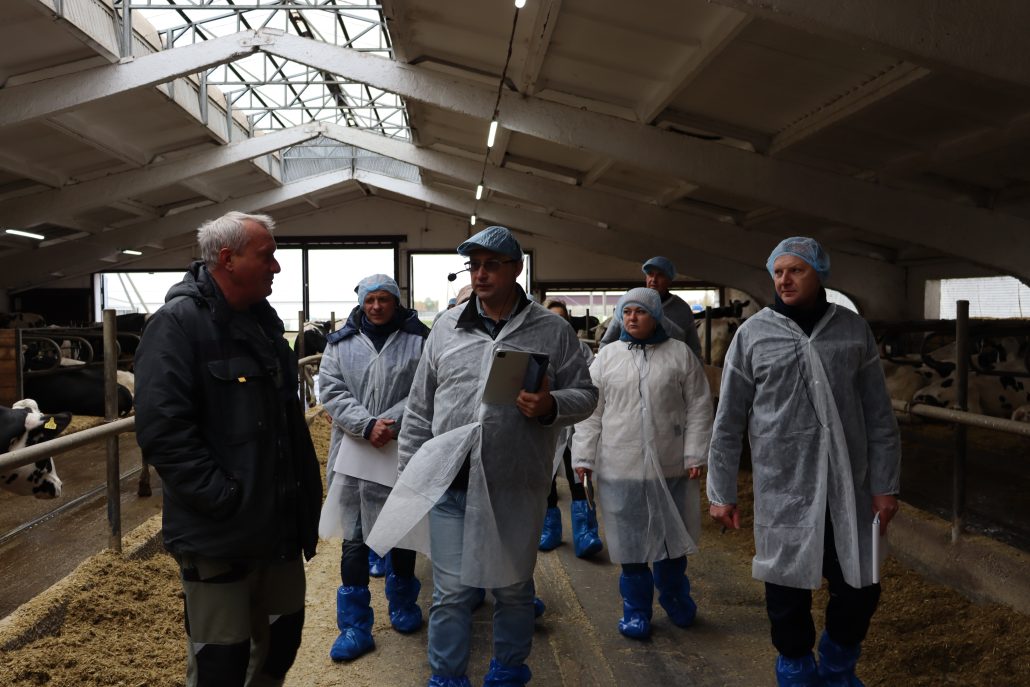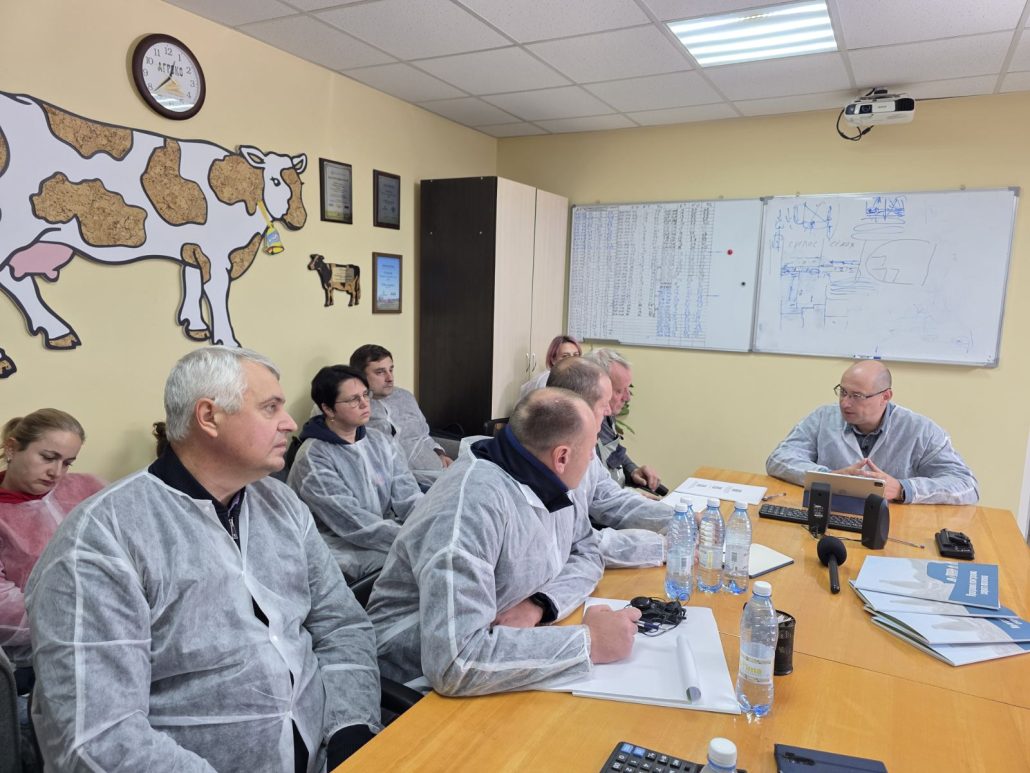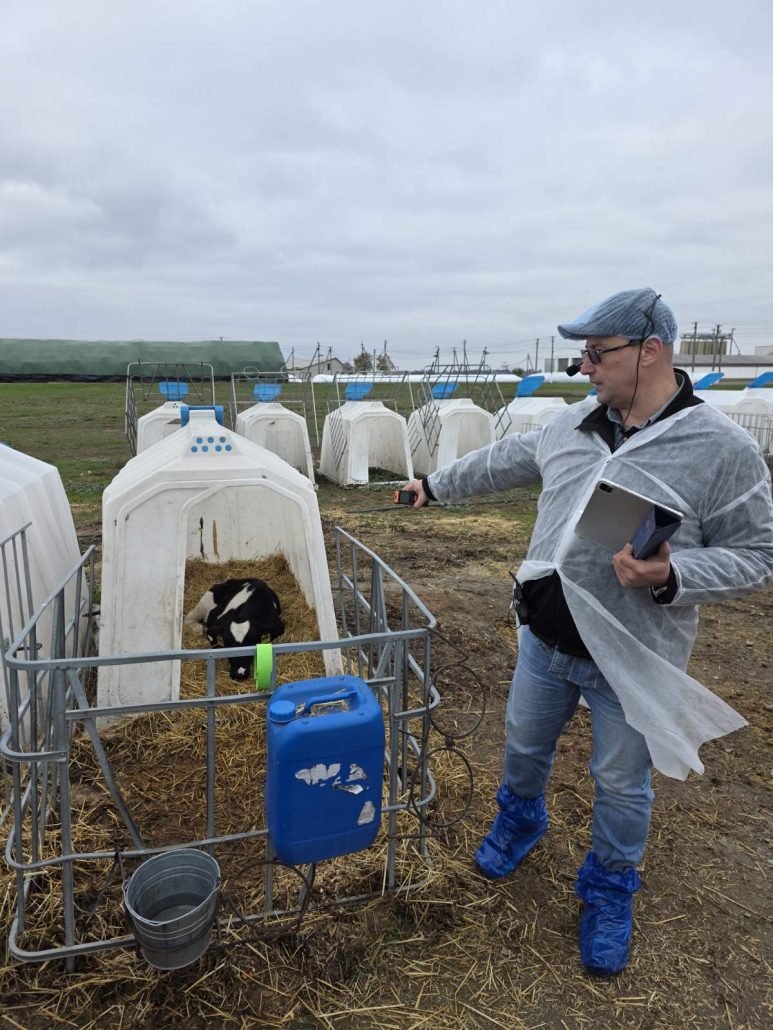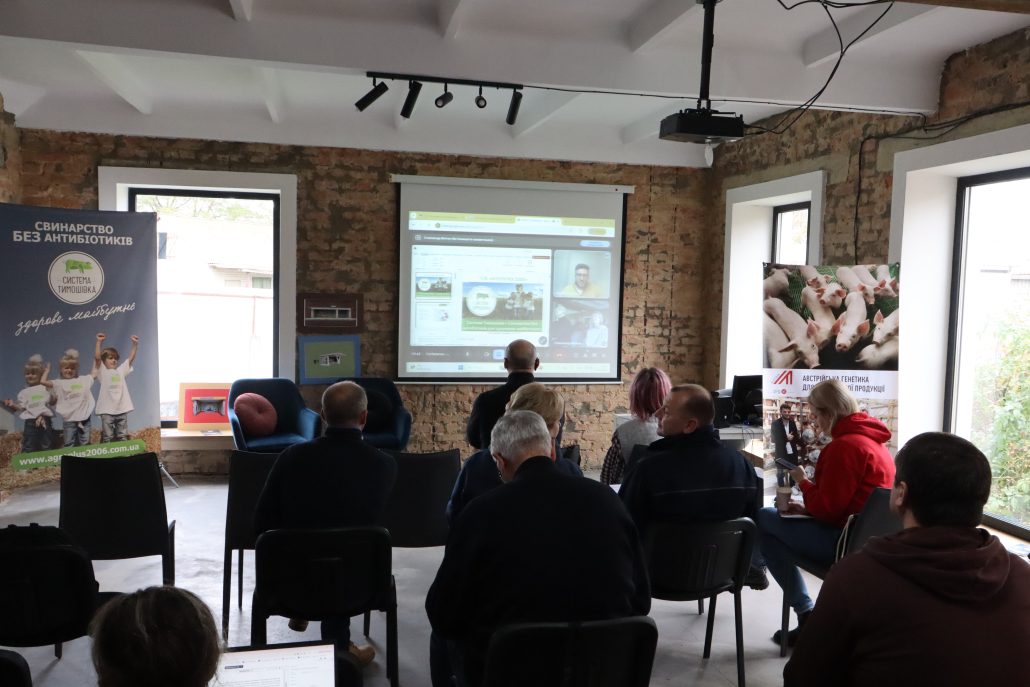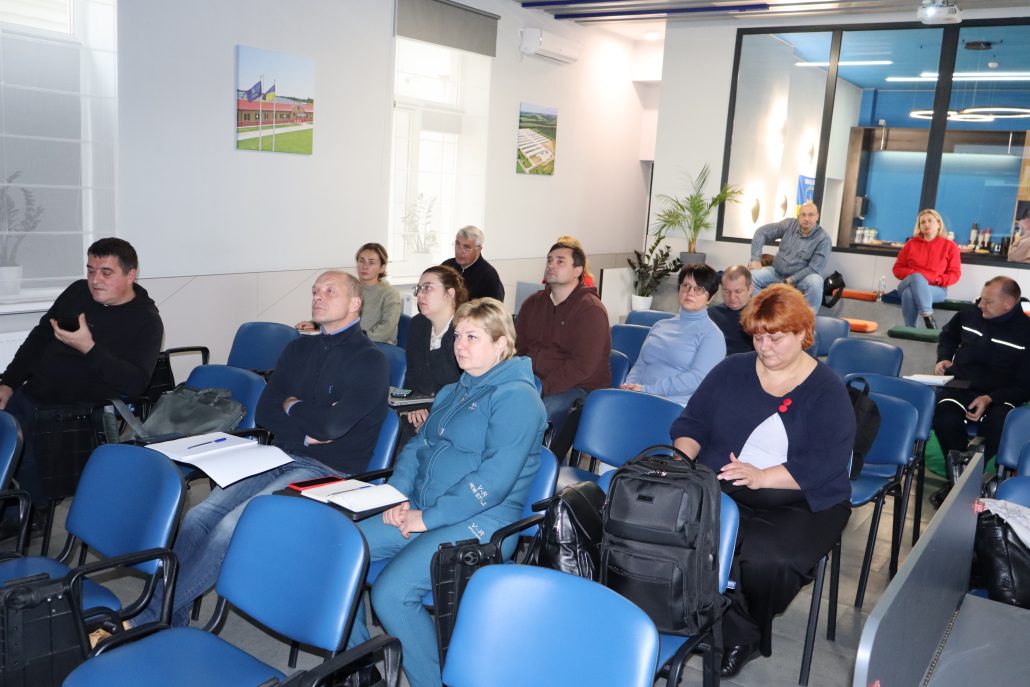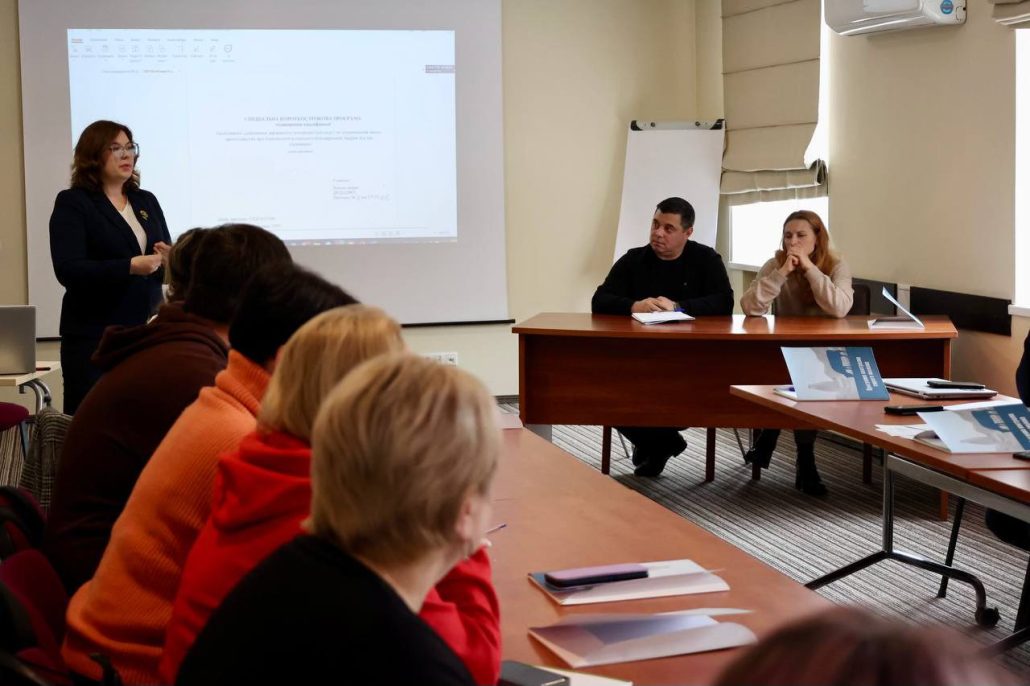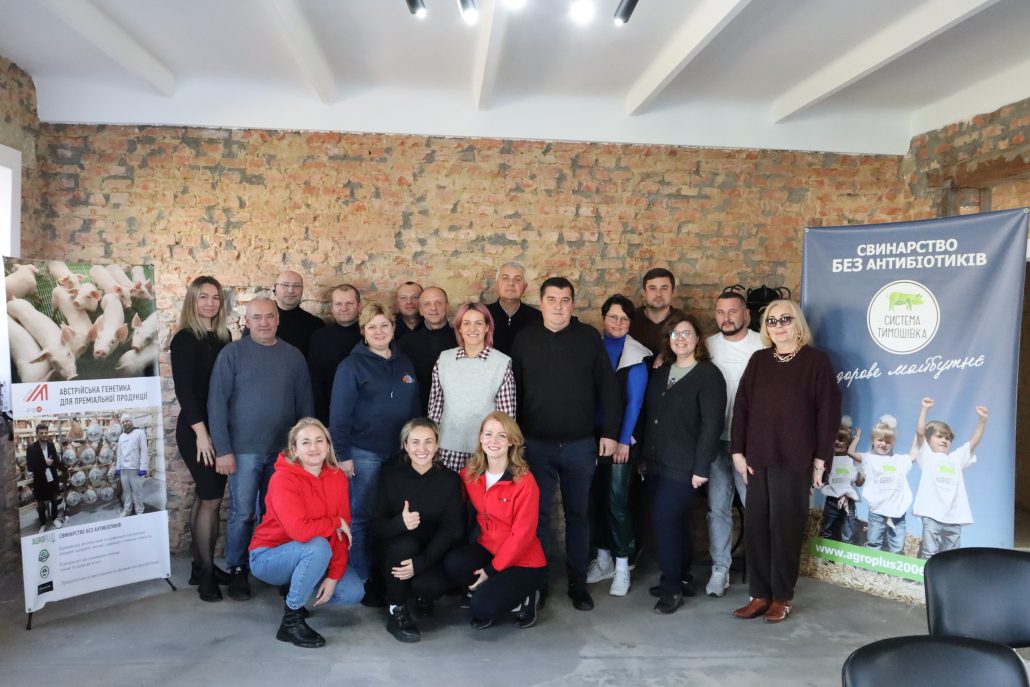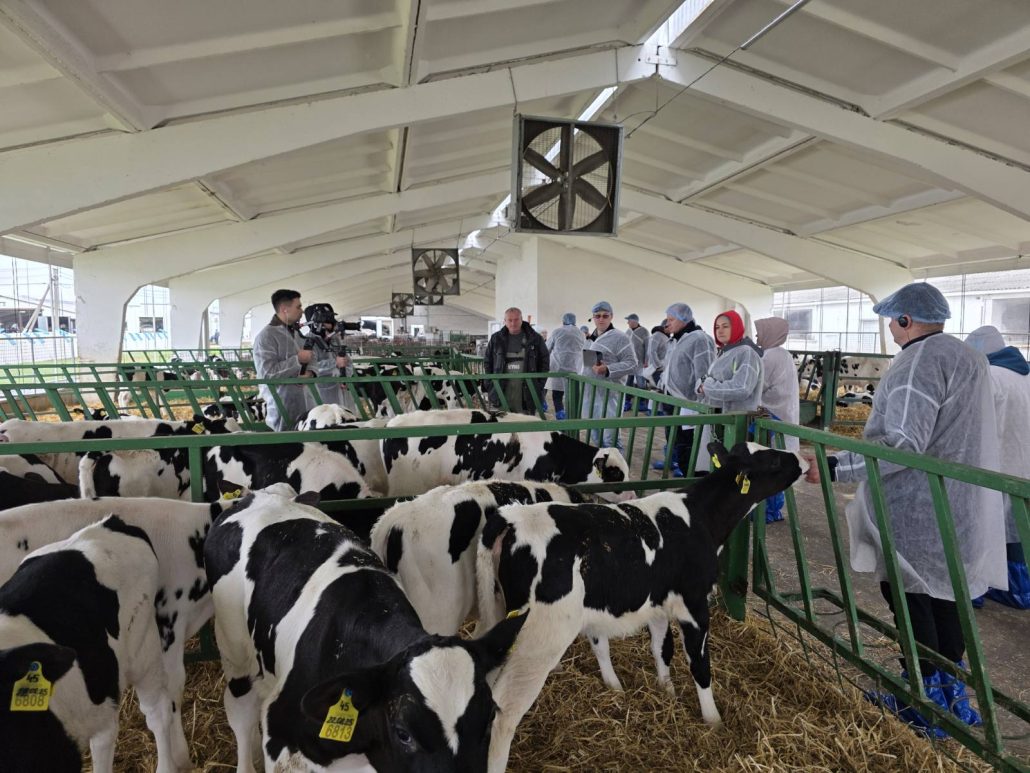
In order to implement the activities of the Roadmap for the implementation of EU animal welfare legislation in Ukraine for 2025-2027 (hereinafter – Roadmap), from 20th to 24th of October 2025, the Main Administration (hereinafter – MA) of the State Service of Ukraine on Food Safety and Consumer Protection (hereinafter – SSUFSCP) in Cherkasy region, in cooperation with the Training Centre of the State Scientific Research Institute of Laboratory Diagnostics and Veterinary and Sanitary Expertise (hereinafter – SSRILDVSE) and with the support of the Swiss-Ukrainian Programme “Higher Value Added Trade from the Organic and Dairy Sector in Ukraine” (QFTP), a practical training course was held for specialists of the SSUFSCP as part of a special short-term professional development programme on “Features of state control (supervision) of compliance with the requirements of legislation on the welfare of farmed animals during their keeping”, which was developed jointly by specialists from the SSUFSCP and QFTP experts.
The aim of the event was to prepare a network of trainers to develop and improve the professional knowledge and skills necessary to ensure a unified approach to official control over business operators’ compliance with legislation on the welfare of farmed animals during their keeping in Ukraine.
Volodymyr Kusturov, the Deputy Head of SSUFSCP, noted in his welcoming speech: “This training is of particular importance, as Order No. 224 of the Ministry of Economic Development, Trade and Agriculture of Ukraine, which approves the requirements for the welfare of farmed animals during their keeping, will come into force on 1 January 2026. It is the network of trained trainers that will be able to train specialists in the regions and help business operators comply with EU animal welfare rules. Each inspector should be not just a controller, but a partner for business – ready to support, advise and jointly build a system where animals are kept in comfortable conditions and production is sustainable. We would like to thank the QFTP experts for their participation in the preparation of the training programme and the organisation of the training, as this is an example of effective partnership, where international experience helps to implement a EU approach to animal welfare and strengthen confidence in official control”.
Eighteen participants took part in the training, including representatives of the central office of the SSUFSCP, the SSRILDVSE, QFTP, and independent experts.
The training included theoretical and practical parts. For effective knowledge acquisition, Victoria Lets, Senior Consultant for the Dairy Sector Component, QFTP, began the theoretical part with an interactive survey to assess the participants’ level of knowledge of national legislation on the welfare of farmed animals during their keeping and provided explanations of those questions that the participants answered incorrectly. Also, during the theoretical part of the training, Yulia Glukhonets, Head of the Educational and Methodological Department of the SSRILDVSE, presented the specifics of conducting training for adult audiences, while Dmytro Unguryan, Deputy Director of the Department of Food Safety and Veterinary Medicine of the SSUFSCP, highlighted approaches to training inspectors and important points to consider during inspections.
The practical part of the training took place over three days directly at livestock establishments for cattle, broilers and pigs and included presentations and simulated inspections for practical application of the theoretical knowledge gained.
At the dairy farm, Viktoria Lets presented the requirements of national legislation for the welfare of dairy cows and calves during their keeping in detail, which fully comply with EU rules. Yulia Hyutel, international expert of the Dairy Sector Component, QFTP, spoke about international experience in ensuring these rules and gave practical examples of indicators used to assess the welfare of dairy cows and calves. Consultant of the Dairy Sector Component, QFTP, Vitaliy Bashynskyi, explained the principles of inspecting dairy farms for compliance with legislation on the welfare of dairy cows and calves during their keeping and conducted a simulated inspection of the establishment to demonstrate to participants what to look for in order to verify compliance with legislation.
During their visit to the broiler farm, senior experts of the EU4SaferFood Project, Blagojcho Tabakovski andCristiano Longo, presented indicators used to assess the welfare of broilers and shared Italy’s experience in organizing official control of business operators’ compliance with broiler`s welfare legislation during their keeping. Oleksiy Klymenok, Head of the Animal Health and Welfare Unit of the Directorate for Animal Health and Welfare, Organization of Anti-Epizootic Measures of the Food Safety and Veterinary Medicine Department of the SSUFSCP, spoke about the requirements of national legislation for broiler welfare and the basic principles of inspection. After the theoretical presentations, the participants took part in a simulated inspection at the production site, during which they worked through all the stages — from analyzing documentation to assessing the welfare of broilers directly in the poultry barn and during their сatching for transport to the slaughterhouse.
At the pig farm, Oksana Yurchenko, an independent expert on pig welfare, gave a detailed presentation on the legal requirements for pig welfare during keeping, as well as the main indicators for verifying compliance with these requirements by business operators. Participants had the opportunity to immediately put their knowledge into practice during a simulation inspection to assess the actual level of welfare using modern methods of visualising pig`s husbandry.
During the training, participants were extremely active and highly appreciated the event, noting in particular the professionalism of the experts involved, the benefits of practical simulation inspections and interactive sessions throughout the training, which contributed to better assimilation of the material.
All participants who passed the final test received appropriate certificates.
The materials and video recordings made during the training will be used to create a distance learning course, which, once completed, will be available to specialists of the SSUFSCP in the Distance Learning’ module of the HR Process Automation and Talent Management System “MOCO”.
Gratitude is extended to the Training Centre of the SSRILDVSE, the SSUFSCP in the Cherkasy region, as well as the management and employees of livestock establishments for the opportunity to conduct simulation inspections for state inspectors of the SSUFSCP for the assistance in organising and conducting the training.
Despite the difficult times for Ukraine, the QFTP team is making every effort to implement the requirements of the legislation of the farmed animal’s welfare and is helping to bring the country closer to EU membership. Therefore, the support of the Ministry of Economy, Environment and Agriculture of Ukraine and the SSUFSCP during the implementation of the Roadmap`s activities, particularly those related to the dairy sector, will continue.
The next step is to hold training events at the regional level, during which trained trainers will share their knowledge.
This event is supported by Switzerland within the framework of the Swiss-Ukrainian Programme “Higher Value Added Trade from the Organic and Dairy Sectors in Ukraine” (QFTP) implemented by the Research Institute of Organic Agriculture (FiBL, Switzerland) in partnership with SAFOSO AG(Switzerland), www.qftp.org and with the participation of the State Service of Ukraine on Food Safety and Consumer Protection.
